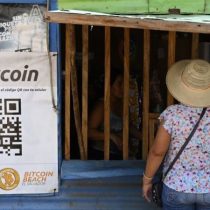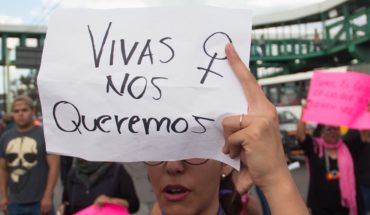
In this video we tell you four keys to understanding bitcoin.
In June, the Salvadoran Parliament approved the legalization of cryptocurrency as legal tender.
Specifically, it establishes that the use of virtual currency will be “unrestricted, with liberatory and unlimited power in any transaction and in any capacity that natural or legal public or private persons want to carry out”.
The exchange rate between bitcoin and the dollar will be set “freely by the market” and not subject to capital gains tax, just like any other legal tender.
As of this Tuesday, every economic agent must accept bitcoin as a form of payment “when it is offered by those who acquire a good or service.”
Getty Images
The government has committed to creating the institutional structure necessary for the circulation of cryptocurrency and the installation of about 200 ATMs where bitcoin can be converted to dollar has begun, although experts point out that this alone will not be enough for the change that is taking place.
Why is it a milestone?
No country in the world had dared before to declare cryptocurrencies legal tender.
In Japan, one of the world’s most advanced countries in the use of digital currencies, a legal reform in 2017 turned bitcoin into a form of payment, which some interpreted as having been granted legal tender status.
However, a report published in 2018 by the Central Bank of Japan clarified that cryptocurrencies “are not a legal tender and their use for payments depends on the willingness of the counterparty to accept them.”
Hence, it has attracted international attention that El Salvador, a small country with a modest economy, was the first to take this step, that was announced and approved in record time with hardly any debate.
The move comes at the same time that many governments around the world, such as China’s, are going in the opposite direction and trying to restrict the adoption of cryptocurrencies with greater regulations.
What are the risks?
The main criticism of the project is, without a doubt, the great volatility that characterizes bitcoin.
Cryptocurrency went from costing around US$10,000 in September 2020 at a maximum of US$63,000 in April 2021 and then fell to US$30,000 in July of this year. Currently around the US$52,000.
It is feared that this great fluctuation could encourage speculative attacks that lead to chaos in the Salvadoran monetary system and with this, that the value of savings, pensions or wages will be affected.
To prevent the population from amending their purchasing power, the government announced the creation of a US$150 million in the country’s Development Bank to automatically exchange the bitcoins of Salvadorans who wish to do so.
Thus, Bukele gave as an example that if a fruit seller does not want to assume the risk of fluctuation and decides to change the bitcoins she receives with her work to dollars, this government-owned bank will buy them at the price at which she valued her fruit, regardless of whether the value changed from the time she made her sale until she deposited the cryptocurrency in the bank.
AFP
However, some economists believe that this does not mean that the government will assume the exchange rate risk, given that it is financed by taxes, which implies, they say, that it will be the entire population, particularly the poorest, who will take the risk.
The International Monetary Fund (IMF) warned that the dangers of adopting cryptocurrency as legal tender go beyond its volatility and that they may imply “significant risks”
Rating agency Fitch, for its part, said the adoption of bitcoin may increase regulatory risks for financial institutions, including the possibility of violating anti-money laundering and “terrorist financing” laws.
El Salvador’s plan has also highlighted the environmental impact of cryptocurrencies (its production spends more energy than many countries), about which the World Bank warned.
What benefits can it bring?
Among the main advantages pointed out by the defenders of this initiative is that, thanks to transactions in bitcoins, the population could save the commissions of intermediaries in remittances that they receive from abroad and that can rise up to 30% of the money sent, Bukele said.
The president has opined that the change will also lead to the generation of jobs and increased investments.
Remittances are a vital sustenance of the Salvadoran economy, as they are close to the 16% of its Gross Domestic Product (GDP).
Despite the pandemic, last year the country received nearly $6 billion from its emigrants, some 2.5 million of whom live in the U.S.
Given the fluctuating value of bitcoin and the fees that have to be paid to some applications for its purchase, some critics have pointed out that the money that exchange houses and shipping agencies were left with will now go into the hands of technology companies.
The president also stressed that around 70% of the population does not have a bank account and works in the informal economy, so cryptocurrencies could improve your financial inclusion.
Only 45% of the Salvadoran population has access to the internet and more than 90% of rural households lack it, according to a 2020 study by the IDB, IICA and Microsoft.
What do Salvadorans think?
A survey by the Central American University (UCA) found that only 4.8% of the 1,281 respondents understood what bitcoin is and how it is used.
More than 68% of respondents said they did not agree with the use of cryptocurrencies as legal tender.
Jeanette Sandoval, 70, who sells groceries for home delivery with her son, says she won’t get involved.
“I’ve always been open to change, but this time I don’t agree. Our customers say they won’t pay in bitcoin,” he told BBC journalist Joe Tidy.
“In my country there are many people who are illiterate and barely have a cell phone, not a smart one, but one of the old ones. They’re not going to use it,” he adds.
26-year-old Salvadoran taxi driver Daniel Hercules, for his part, says he is excited about the move but worried about the stability of his earnings.
“I have accepted bitcoin for about two months since I knew this was coming. Someone recently paid me $40 in bitcoin for an airport fee, but it’s rare. Only about 10% of customers prefer to pay with bitcoin,” he says.
Daniel says the cost of converting bitcoin to the local currency, the U.S. dollar, is high, at 10%, so he’s using the money as a savings account.
He hopes to grow his wallet to around $1,000 in bitcoin, but is afraid that the value of the coin will fall apart.
“It’s one of the things that worries me the most. Losing money from long working hours wouldn’t be right.”





